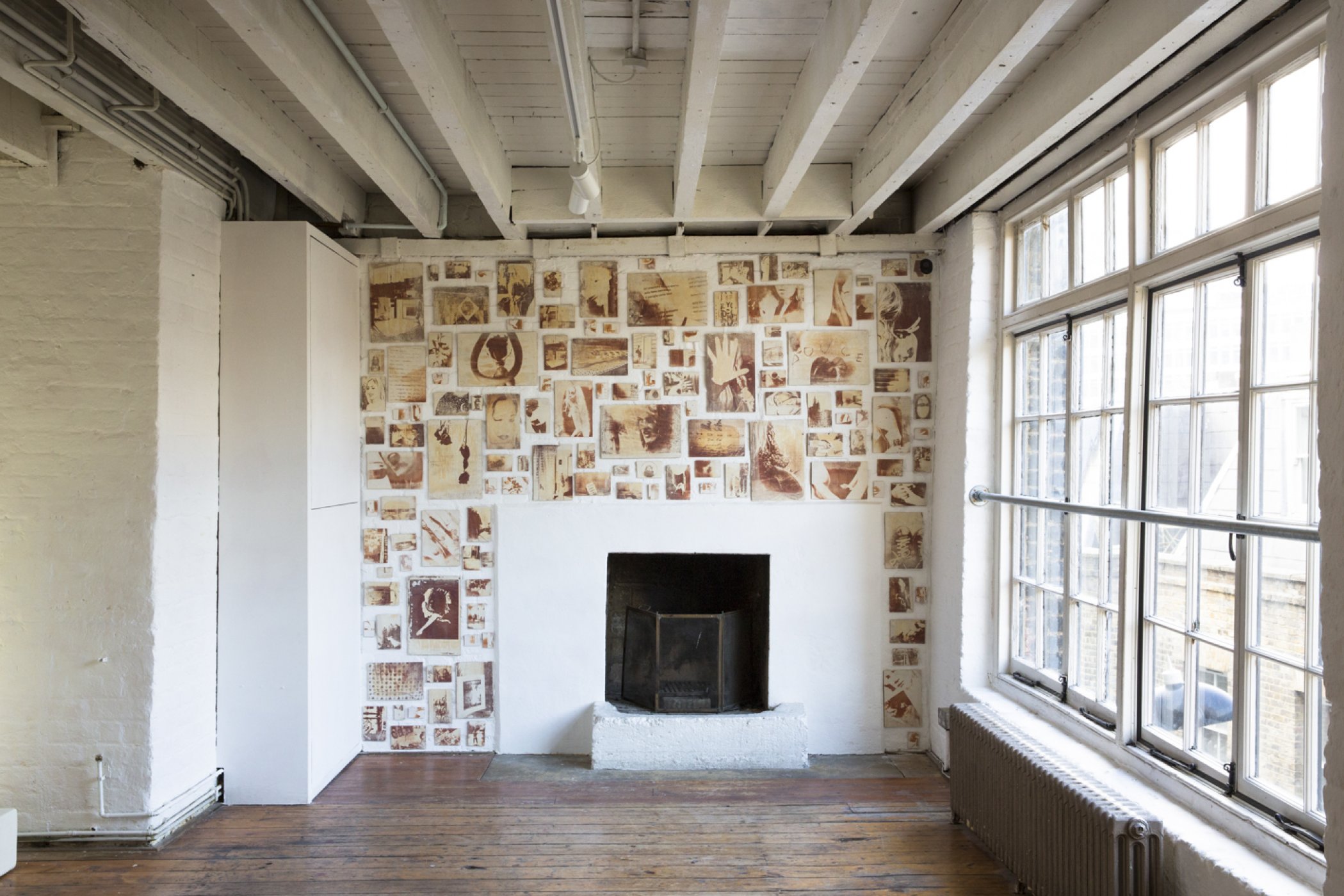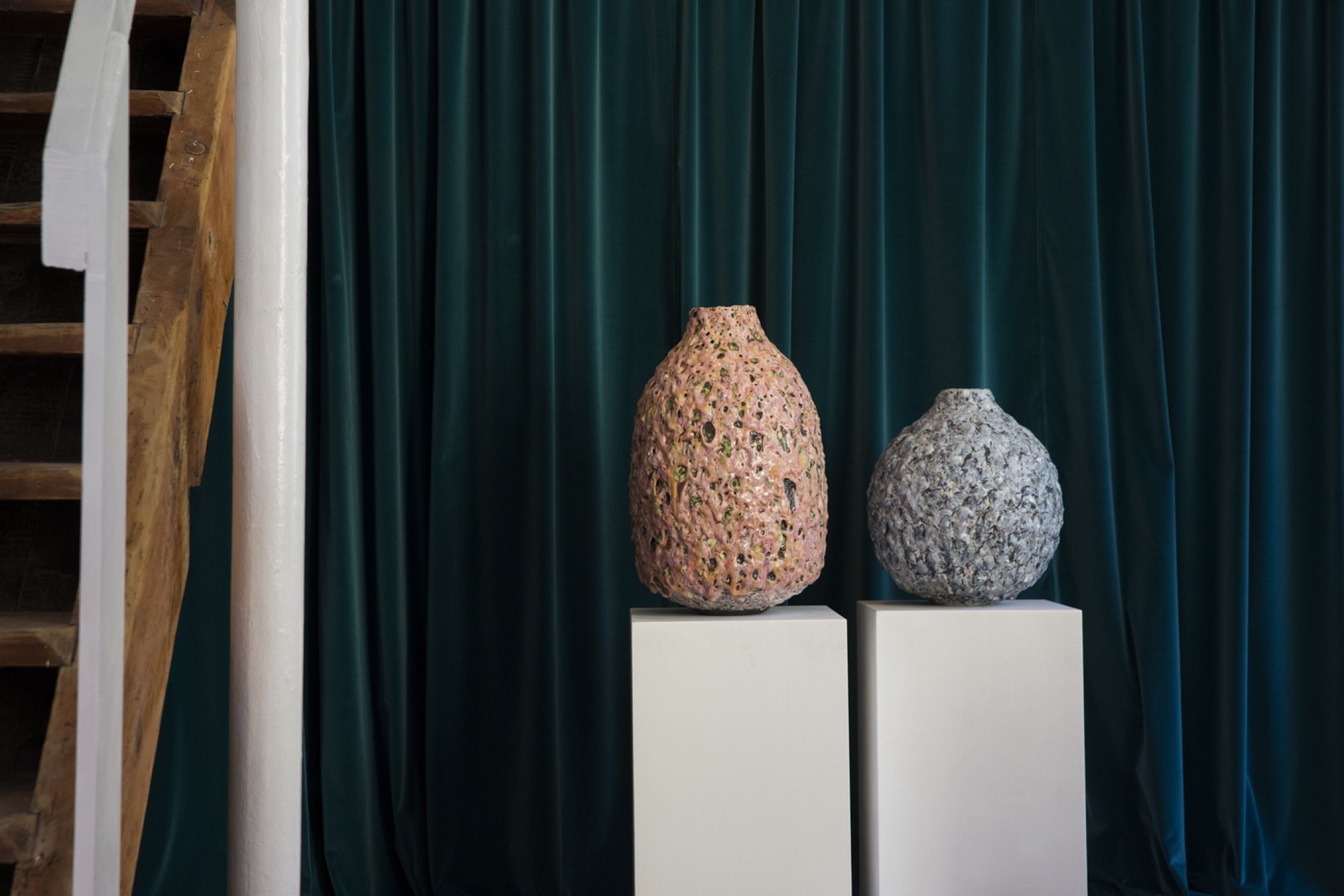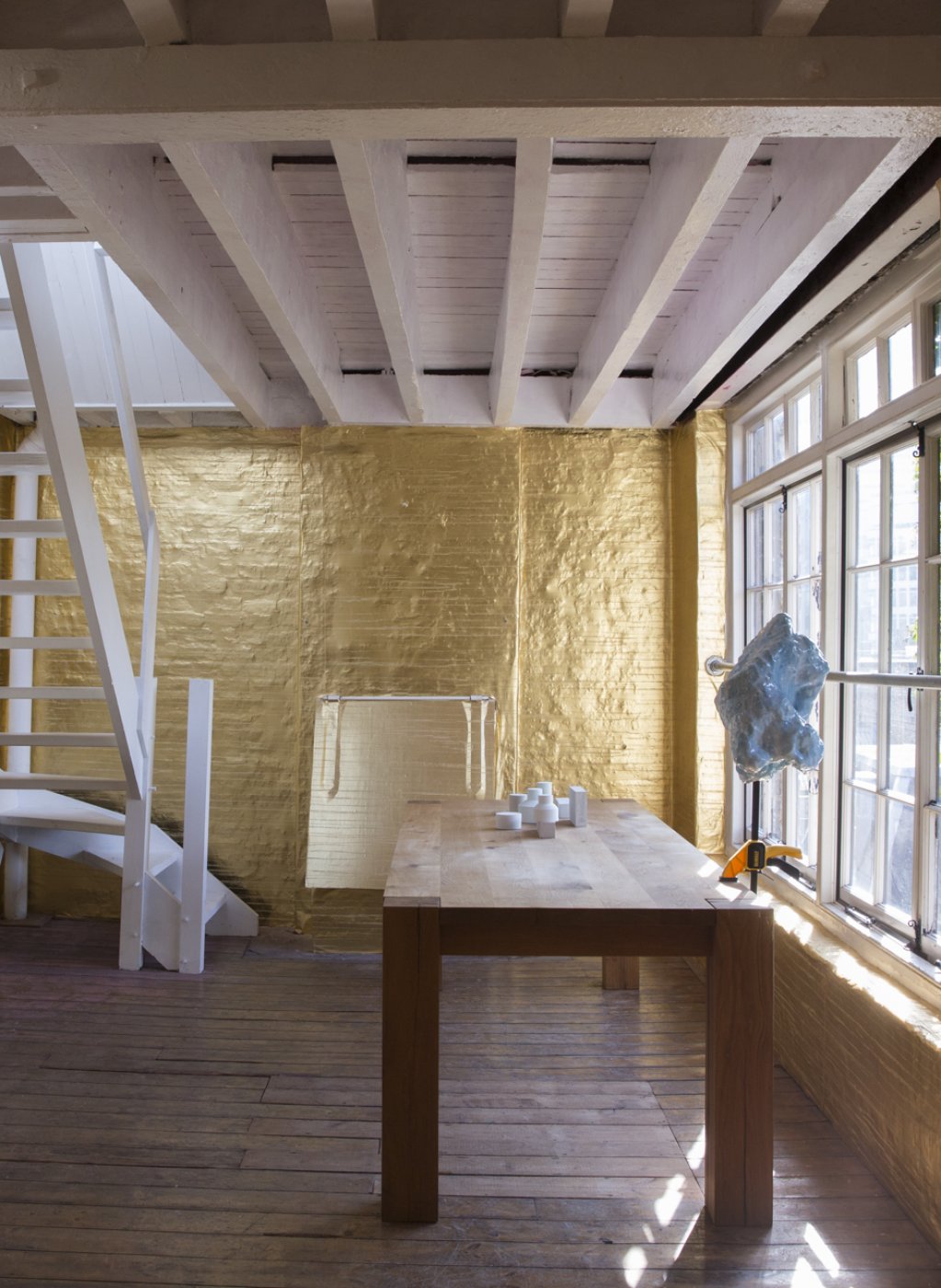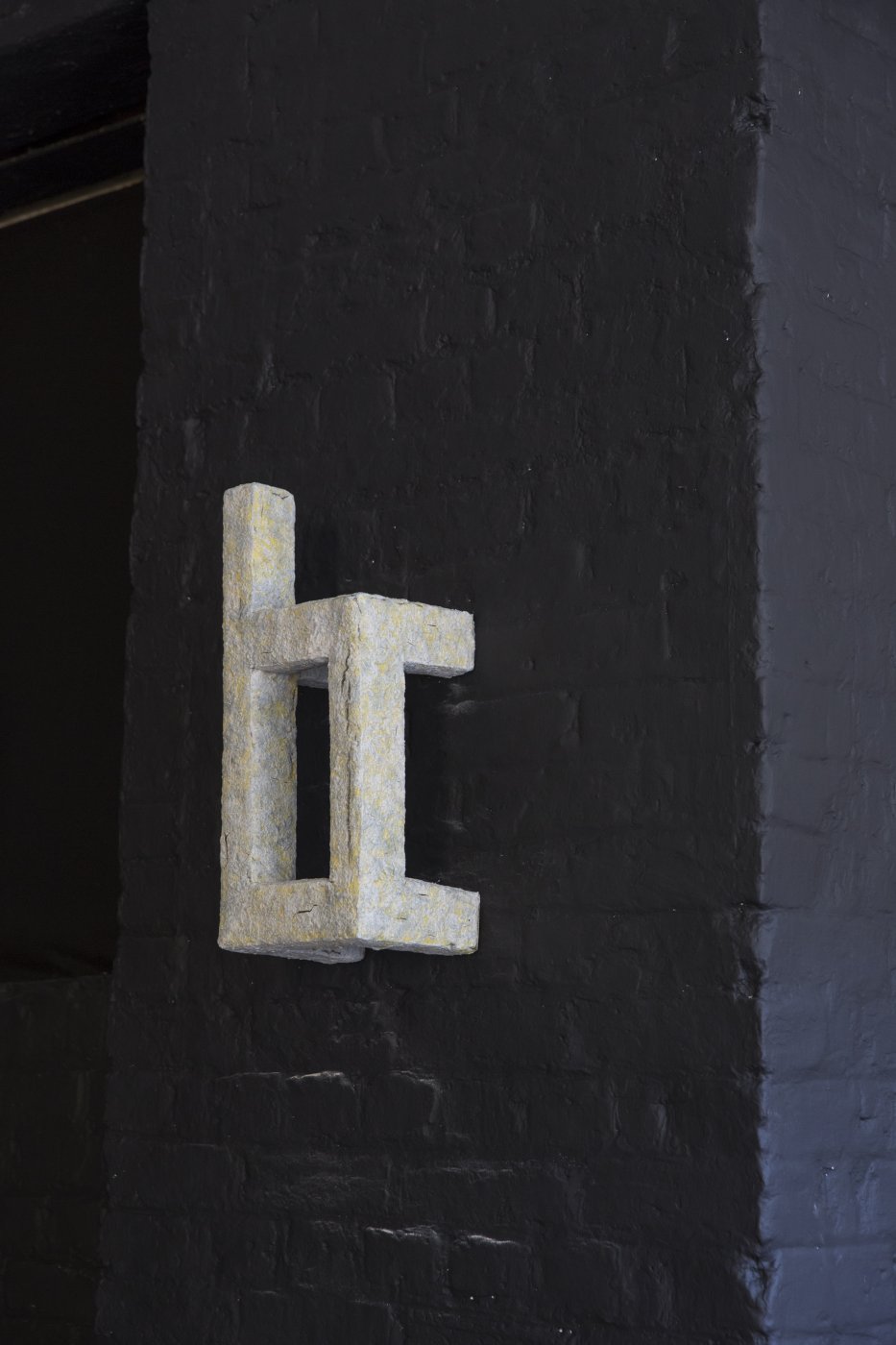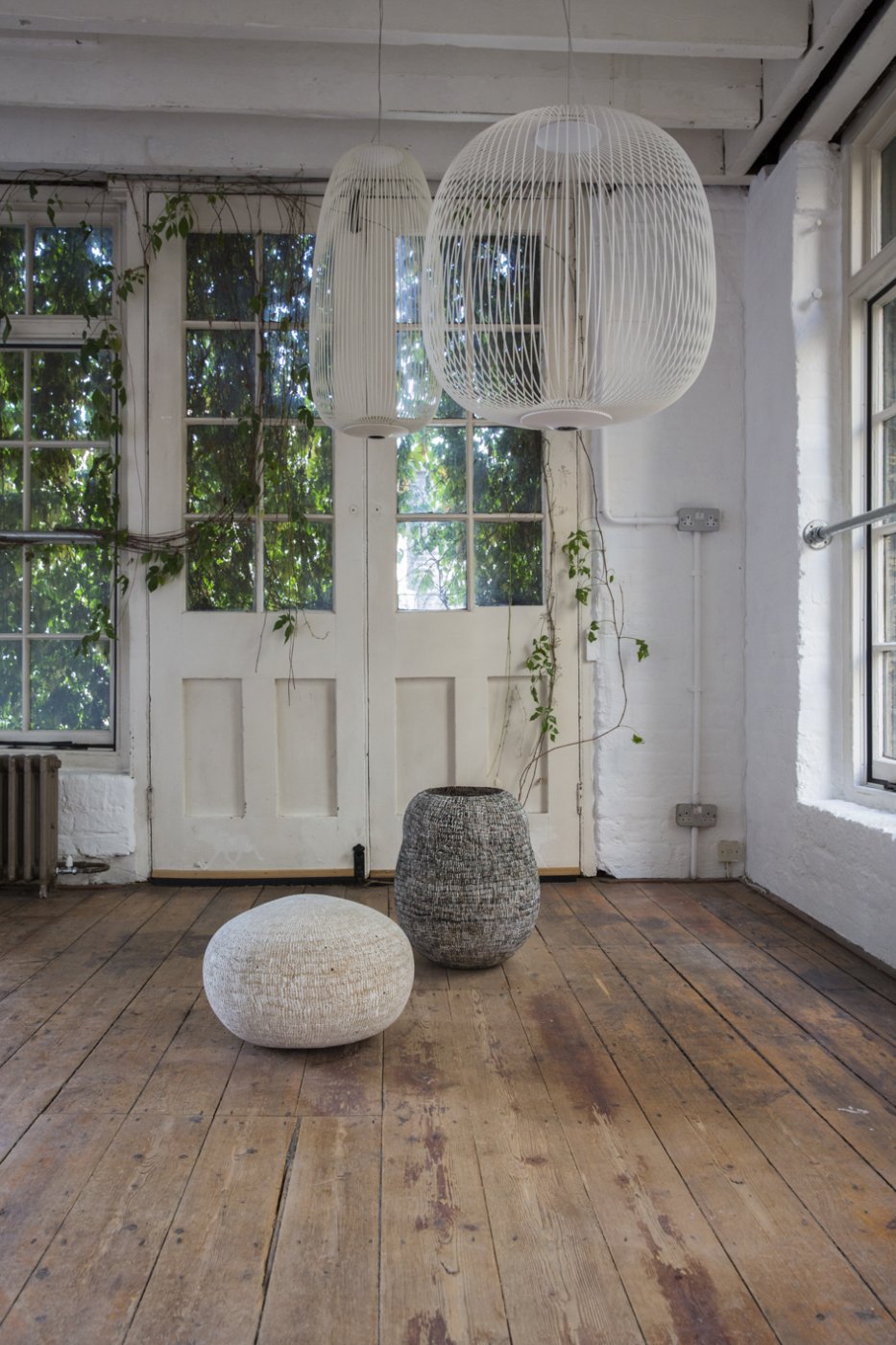The Liminal Space
Oneroom Gallery, 9 French Place, E16JBL London UK
Officine Saffi is pleased to present The Liminal Space, a temporary exhibition at Oneroom Gallery curated by Hugo Macdonald. The group show intends to investigate the major trends and personalities of the contemporary ceramic scene.
The continued growth of interest in ceramic art is a mixed blessing. On the one hand, greater awareness leads to greater attention, which provides a welcome platform for a greater number and diversity of artists to have a voice. Simultaneously, and perhaps inevitably, the landscape becomes a little confused, too. It’s not that strict definitions of what does and does not constitute ceramic art are required, but rather that the confidence of individual expression and clarity of communication can often be drowned out by the sheer volume of din elsewhere. This is why Officine Saffi has taken residence in Oneroom Gallery in Shoreditch, east London.
The context of Oneroom Gallery, a converted four-storey Victorian warehouse, brings the group show to life beautifully. Surrounded by the patinated materials, textures and perceptible memories of previous lives, there is a resonance in the air here that provides atmosphere, whilst allowing for a personal dialogue between the viewer and the exhibited artworks. It feels intimate, unlike so many purpose-built gallery spaces, which befits the intimacy at the heart of ceramic art and the relationship it requires with its viewers.
There is a distinct relationship with the natural world in the work of Kati Tuominen and Sangwoo Kim. There is evidence of their respective Finnish and Korean ceramic heritages but they are personal memories. Tuominen’s coarse stoneware, in places patinated with oxides or carved, has a rugged elemental tactility of stone or bark. Kim’s ethereal objects feel born from the earth; part liquid, part lava, burnished by water or perhaps time. In both artists’ work, you feel a powerful connection to nature more than man. Morten Løbner Espersen and Anders Herwald Ruhwald are concerned with ideas made visible with an experimental edge. They challenge and provoke us. Espersen’s archetypal urns form the basis of his research into built-up glazes; the familiar classical forms appear to be suffocated by multiple layers of colour and texture. Ruhwald plays with the physicality of his forms with a balance of contrasts: they are bold and abstract, precarious and mesmeric. In both cases as viewers we feel part of their world and distanced from it too. Irina Razumovskaya and Mia E. Goransson create tableaux or worlds that transport us. At times they can feel like geometric structures in the backgrounds of early Renaissance paintings, at others, closer to Memphis. The simplicity of arrangements constructed out of 3-dimensional shapes brings an almost childlike quality, distorted and abstracted on closer inspection. They tread a fine line that flickers back and forth between comfortingly familiar and disquietingly alien. Immersive also are the installations of Nero/Alessandro Neretti and Silvia Celeste Calcagno. In both cases the work of these artists is deeply personal. Nero’s sculptures are reflections and statements on wider social and political life. His work is imbued with messages and highly charged as a result. Calcagno’s poetic experiments with recording photography on ceramics reveal fragments of stories, like partially forgotten memories. They feel fragile and vital, tinged also with melancholy in the sense that, like memories, they will fade over time. It has been suggested that ceramics are a bellwether of wider culture in the ebb and flow of their perceived appreciation: in times of stability our interest wanes as we focus on literal matters; when life is uncertain it waxes as we crave the comforting humanity of clay and its haptic qualities. Today, we find ourselves widely searching for meaning and significance as our daily reality reinvents itself with ever-greater speed.
Ceramic art, as a form of cultural expression occupying the liminal space between heart and hand, mind and material, has rarely felt so relevant.
The continued growth of interest in ceramic art is a mixed blessing. On the one hand, greater awareness leads to greater attention, which provides a welcome platform for a greater number and diversity of artists to have a voice. Simultaneously, and perhaps inevitably, the landscape becomes a little confused, too. It’s not that strict definitions of what does and does not constitute ceramic art are required, but rather that the confidence of individual expression and clarity of communication can often be drowned out by the sheer volume of din elsewhere. This is why Officine Saffi has taken residence in Oneroom Gallery in Shoreditch, east London.
The context of Oneroom Gallery, a converted four-storey Victorian warehouse, brings the group show to life beautifully. Surrounded by the patinated materials, textures and perceptible memories of previous lives, there is a resonance in the air here that provides atmosphere, whilst allowing for a personal dialogue between the viewer and the exhibited artworks. It feels intimate, unlike so many purpose-built gallery spaces, which befits the intimacy at the heart of ceramic art and the relationship it requires with its viewers.
There is a distinct relationship with the natural world in the work of Kati Tuominen and Sangwoo Kim. There is evidence of their respective Finnish and Korean ceramic heritages but they are personal memories. Tuominen’s coarse stoneware, in places patinated with oxides or carved, has a rugged elemental tactility of stone or bark. Kim’s ethereal objects feel born from the earth; part liquid, part lava, burnished by water or perhaps time. In both artists’ work, you feel a powerful connection to nature more than man. Morten Løbner Espersen and Anders Herwald Ruhwald are concerned with ideas made visible with an experimental edge. They challenge and provoke us. Espersen’s archetypal urns form the basis of his research into built-up glazes; the familiar classical forms appear to be suffocated by multiple layers of colour and texture. Ruhwald plays with the physicality of his forms with a balance of contrasts: they are bold and abstract, precarious and mesmeric. In both cases as viewers we feel part of their world and distanced from it too. Irina Razumovskaya and Mia E. Goransson create tableaux or worlds that transport us. At times they can feel like geometric structures in the backgrounds of early Renaissance paintings, at others, closer to Memphis. The simplicity of arrangements constructed out of 3-dimensional shapes brings an almost childlike quality, distorted and abstracted on closer inspection. They tread a fine line that flickers back and forth between comfortingly familiar and disquietingly alien. Immersive also are the installations of Nero/Alessandro Neretti and Silvia Celeste Calcagno. In both cases the work of these artists is deeply personal. Nero’s sculptures are reflections and statements on wider social and political life. His work is imbued with messages and highly charged as a result. Calcagno’s poetic experiments with recording photography on ceramics reveal fragments of stories, like partially forgotten memories. They feel fragile and vital, tinged also with melancholy in the sense that, like memories, they will fade over time. It has been suggested that ceramics are a bellwether of wider culture in the ebb and flow of their perceived appreciation: in times of stability our interest wanes as we focus on literal matters; when life is uncertain it waxes as we crave the comforting humanity of clay and its haptic qualities. Today, we find ourselves widely searching for meaning and significance as our daily reality reinvents itself with ever-greater speed.
Ceramic art, as a form of cultural expression occupying the liminal space between heart and hand, mind and material, has rarely felt so relevant.

